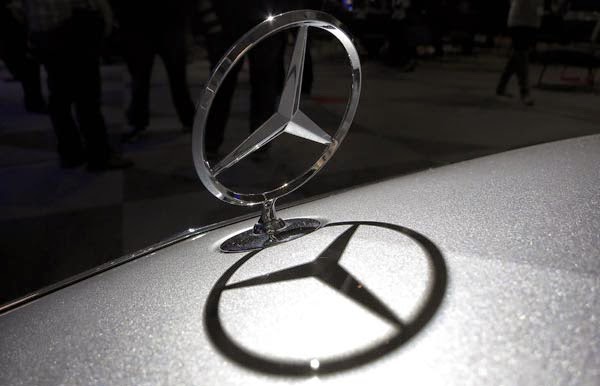Visitors inspect and take a photo of the lunar samples retrieved from the moon by China's Chang'e 5 spacecraft displayed at the SCI - Power For Future Thailand, a science and space technology exhibition. Photo: VCG
"I was 'over the moon' hearing the news!" said Mahesh Anand, Professor of Planetary Science and Exploration at the Open University in the UK, recalling the moment he learned he would receive lunar samples from China - the first such materials returned to Earth in nearly half a century - his reaction was sheer elation.
Anand has now brought the Chang'e-5 samples which he described as "priceless" and "rarer than gold" back to his lab in the UK. He praised China's "amazing initiative" to share the samples globally and urged for deeper collaboration with Chinese scientists, saying, "because we know that in science, we make best progress when people work together," he told the Global Times in an exclusive interview.
In 2020, China's Chang'e-5 mission retrieved samples from the Moon weighing about 1,731 grams, the first such return in nearly 50 years. In November 2023, the China National Space Administration (CNSA) opened applications for international researchers to borrow Chang'e-5 lunar samples, and it announced in April this year that scientists from institutions in France, Germany, Japan, Pakistan, the UK and the US have been granted access, according to Xinhua News Agency.
With over 20 years of experience studying Apollo mission samples and lunar meteorites, Anand told the Global Times he was thrilled to become the only scientist in the UK to secure the Chang'e-5 lunar dust. Although he had studied various lunar samples from earlier missions, the Chang'e-5 samples are quite different and unique, the professor said. He outlined two major scientific questions his team aims to explore using them.
First, by analyzing oxygen isotopes, Anand's team hopes to resolve the debate on the origin of the Moon - Did it come from the Earth or a giant impact? The second goal is to assess the availability of life-essential elements, such as carbon and nitrogen, in the samples. By learning more about the evolution of the Moon and the arrival of life, the samples could have a big implication for understanding how life arose on earth.
Commenting on China's gesture of inviting global researchers to study the rare samples, Anand called it "an amazing initiative." "I think it's just wonderful to see that China is willing to share these samples with international scientists."
Frederic Moynier, Professor at Paris Institute of Earth Physics, is also among the first international scholars to have been loaned the Chang'e-5 samples. In an exclusive interview with the Global Times, he highlighted their scientific value, citing the pristine condition of the rock fragments, the unexplored location where the samples were dug up, and more importantly, the rocks that are over a billion years younger than those collected during the Apollo missions, are what made the Chang'e-5 samples so scientifically precious.
Moynier's research goal is to analyze the chemical and isotopic composition of the samples to better understand the composition of the lunar mantle in regions far from the Apollo landing sites. "One of the key questions I'm addressing is: why is the Moon so depleted in volatile elements compared to Earth?" he said.
Moynier called China's decision to share the Chang'e-5 samples "a remarkable gesture of scientific openness," as it marks a new phase in global space research. "Lunar science, like all planetary science, benefits greatly from diversity of thought, technique, and interpretation. By enabling international access, China is helping to maximize the scientific return of this mission," he told the Global Times.
As the US continues to escalate the "China threat" narrative, extending it now to the space domain, growing attention is being paid to how geopolitical tensions might impact international space collaboration. Addressing this, Anand said he feels fortunate not to have experienced such impact, and expressed hope that "scientific collaboration, particularly in space, could bring countries together than otherwise is the case."
"Divisions are created by humans. But at the end of the day, we are all connected to each other. We need to try finding strength in those differences rather than divisions… and I think space is such a place where one can try to do that," Anand explained.
Moynier noted that he has worked on several joint projects with China over the years, and believes that continued scientific engagement is a way to foster mutual understanding and build trust, even amid rising geopolitical tensions.
For future partnerships with China, the UK scientist did not hide his excitement for the opportunity to apply for Chang'e-6 samples - the only lunar materials ever collected from the Moon's far side. "The chance of discovering something new from the Chang'e-6 samples is huge. If I really get the opportunity and the privilege to work on this, I would be, again, 'over the moon!'" he said.
Beyond lunar studies, Anand also hopes to collaborate with Chinese peers on samples returned from Mars and asteroids as well, which China aims to retrieve with its Tianwen series of missions.
The French researcher also highlighted instrument development as a promising area for future China-Europe collaboration. As China advances its exploration of other celestial bodies and Moynier's laboratory pioneers new analytical techniques, he said such partnerships could lead to breakthroughs in both technological innovation and scientific understanding.












